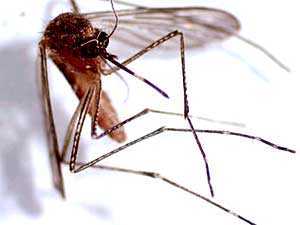A world without mosquitoes? Nature posits that wiping out the Minnesota state bird might not have horrible consequences for our fragile ecosystem as most biologists would maintain.
…in many cases, scientists acknowledge that the ecological scar left by a missing mosquito would heal quickly as the niche was filled by other organisms. Life would continue as before — or even better. When it comes to the major disease vectors, “it’s difficult to see what the downside would be to removal, except for collateral damage”, says insect ecologist Steven Juliano, of Illinois State University in Normal. A world without mosquitoes would be “more secure for us”, says medical entomologist Carlos Brisola Marcondes from the Federal University of Santa Catarina in Brazil.
News Cut talked with PZ Myers, a biologist at the University of Minnesota, Morris and proprietor of the science blog Pharyngula, about the Nature article.

Myers: It was a bizarre article because, for one thing, we simply cannot do this. We do not have the capability to eradicate entire species of insects, intentionally at least. And then, mosquitoes have tremendous impact all across the ecological spectrum. Wiping them out would have all kinds of unintended consequences.
@NewsCut: So in what ways are mosquitoes helpful?
Myers: Fishing for one, which I guess is kind of important in Minnesota, right? This is what fish live on, is aquatic insect larvae for the most part. We’d like to keep that going. They transfer materials from terrestrial species to aquatic forms, so they’re essentially shuttling protein, chemical compounds, etc., across the ecosystem. In the most unpleasant way possible of course. But it’s still a valuable function. In the arctic, caribou are being bled by clouds of mosquitoes sucking up 300 ml of blood from each animal every single day. Which is impressive. The caribou are are suffering but they’re also taking their blood and transferring it to these insects and spreading it around to the ecosystem.
@NewsCut: If we were able to make mosquitoes go away, what happens?
Myers: We don’t know what the consequences would be. One possibility is that other species would step in and fill the same role. And maybe these species would be better for us because they wouldn’t be transferring diseases like malaria. On the other hand we don’t know what species it would be, so it could be something genuinely awful. In Minnesota we have something called no-see-ems. What if they or biting black flies stepped in?
@NewsCut: So what can we do, short of wiping out mosquitoes?
Myers: There’s been some interesting work in producing mosquitoes that don’t carry the malaria parasite, and intentionally going out at replacing disease-spreading mosquitoes with this modified variant that doesn’t carry malaria. That sounds a lot more productive to me.
@NewsCut: How much tampering can a species like this tolerate before we get unintended consequences?
Myers: What this may mean is you get mosquitoes that don’t don’t spread malaria but you get healthier mosquitoes that do more biting. There’s nothing we can do that wouldn’t have unintended consequences. Biology is a tangled snarl. Everything you do affects everything else.
@NewsCut: As a biologist, when you get attacked by a cloud of mosquitoes, do you think about them differently than the rest of us?
Myers: No. I hate them. They’re a real pain in the butt.
